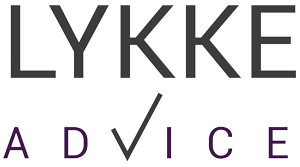2023 was officially announced as the European Year of Skills, but what can you get out of this focus as a company? Will your company be able to benefit from it? Or is it just an empty shell for the EU to point out a problem without bringing anything concrete to the table?
The President of the European Commission Ursula von der Leyen identified in her State of the Union Speech back in September 2022, that a workforce with the right skills is crucial for development, a key driver of growth and competitiveness in Europe and especially for small and medium-sized enterprises (SMEs). This is why the European Year of Skills is coming at a very important time.
While the EU average unemployment rate remains stable at around 6 percent in August 2022, 77% of companies struggle to find employees with the required skills. Not to mention some sector problems such as the lack of women in science, technology, engineering and mathematics careers.
The European Year of Skills can land between two chairs:
It can either be the opportunity to support companies, especially SMEs, by taking initiatives to strengthen the teaching of strategic skills for the Green and Digital Transitions (e.g., STEAM education) at Member State level. Although the EU doesn’t have power in the national curriculums, it can still encourage investments in these areas by the allocation of funds via the EU Recovery and Resilience Facility.
Or it can be the total failure of good intentions not supported by concrete measures.
It is not a new topic – this problem has been known for years and has already been mentioned and highlighted in several EU policies – e.g. the European Skills Agenda of 2020, and the Porto Declaration. However, we still need to see actual changes and concrete initiatives. Part of the problem lies in the fact that the EU has very little decision power over education as this is primarily a national competence.
Almost everyone can agree that education is an investment in our common future, and we can also agree that quality education can boost creativity and innovation and foster forward-looking capacities. The content of teaching and the organisation of educational systems is a national competence. The real question here is if the Member States are willing to give in a little to this principle. With all the cross-border challenges we are facing in Europe it would be profitable for all to establish a European Education Area or at the very least coordination. So, when EU funds are provided to one country e.g., through the Recovery and Resilience Facility, and new innovative steps are taken, that is shared and promoted to the other Member States. The same goes for other funding programs strengthening education in Member States such as the European Structural and Investment Funds, Erasmus + and Horizon Europe.
The Digital Education Action Plan (2021-2027) created a new policy initiative and might just be the tool that can make the European Year of Skill deliver on its promises and needs. It calls for greater cooperation at the EU level on digital education. It aims to create a European Education Area by 2025. It will be interesting to see how the Member States react to the commitment during the Spanish EU Presidency in autumn 2023, where two initiatives will be discussed. Likely to be presented by the Commission in April are the recommendations on digital skills (improving their provision) and digital education (enablers for success). Dedicated public consultations were launched last year, and the topic will now be discussed politically among the Member States. It will be important for companies – both those that need the workforce and those involved in providing equipment for education to be active in this debate and to send the signal of a need for a coordinated European effort.
The conclusion is that if the EU wants to succeed with the implementation of ambitious policies namely the European Green Deal, the Fit for 55 packages, the Renovation Wave for Europe, the RePowerEU plan, the recast of the Energy Efficiency Directive, the New Circular Economy Action Plan, the Zero Pollution Action Plan, the EU Biodiversity strategy for 2030, the Farm to Fork Strategy and the communication on a new approach for a sustainable blue economy in the EU – it will need to find that skilled workforce to implement it. A lot can be done by putting it as a prerequisite in the funding programs but more needs to be done to coordinate between countries and exchange best practices, projects and initiatives to boost skills. Companies need to play an active role and see what opportunities the EU is already providing through its funding programs. If you are interested to learn more about this topic, please contact Lykke Advice – we are ready to help you explore the area.


